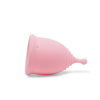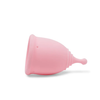Entering menopause is a significant phase in a woman's life, yet it's often shrouded in mystery and misconceptions. Understanding menopause and its symptoms is crucial for women to navigate this transition with confidence and grace. In this post, we'll delve into the symptoms of menopause, their impact on daily life, and effective strategies for managing them.
-
What is Menopause?Menopause marks the end of a woman's reproductive years, typically occurring in her late 40s to early 50s. It is defined as the cessation of menstruation for 12 consecutive months, signaling the depletion of ovarian follicles and the decline in reproductive hormones, particularly estrogen and progesterone.
-
Common Symptoms of Menopause: Menopause is accompanied by a range of physical and emotional symptoms, which can vary in intensity and duration for each woman. Some common symptoms include:
- Hot flashes and night sweats: Sudden, intense feelings of heat, often accompanied by sweating, flushing, and rapid heartbeat.
- Mood swings and irritability: Fluctuations in hormone levels can lead to mood changes, irritability, anxiety, and depression.
- Sleep disturbances: Insomnia or disrupted sleep patterns are common during menopause, often due to night sweats or hormonal fluctuations.
- Vaginal dryness and discomfort: Declining estrogen levels can result in vaginal dryness, itching, and discomfort during intercourse.
- Changes in libido: Some women experience a decrease in sexual desire or changes in sexual response during menopause.
- Weight gain and changes in body composition: Hormonal changes can affect metabolism and lead to weight gain, particularly around the abdomen.
- Cognitive changes: Some women may experience forgetfulness, difficulty concentrating, or "brain fog" during menopause.
-
Coping Strategies and Management: While menopausal symptoms can be challenging, there are various strategies and lifestyle changes that can help manage them effectively:
- Hormone Replacement Therapy (HRT): HRT can alleviate many menopausal symptoms by replenishing estrogen levels. However, it's essential to discuss the risks and benefits with a healthcare provider, as HRT may not be suitable for everyone.
- Lifestyle modifications: Eating a balanced diet, staying physically active, managing stress through relaxation techniques or therapy, and avoiding triggers like caffeine and alcohol can help alleviate symptoms.
- Natural remedies: Some women find relief from menopausal symptoms through alternative therapies such as herbal supplements, acupuncture, or yoga. While research on their effectiveness varies, they may be worth exploring under the guidance of a healthcare professional.
- Support and education: Joining support groups or seeking guidance from healthcare providers can provide valuable information and emotional support during this transition.
Remember, every woman's menopausal journey is unique, so it's essential to listen to your body and seek support when needed. Embracing self-care, staying informed, and seeking guidance from healthcare professionals can make the menopausal transition smoother and more manageable.




Leave a comment